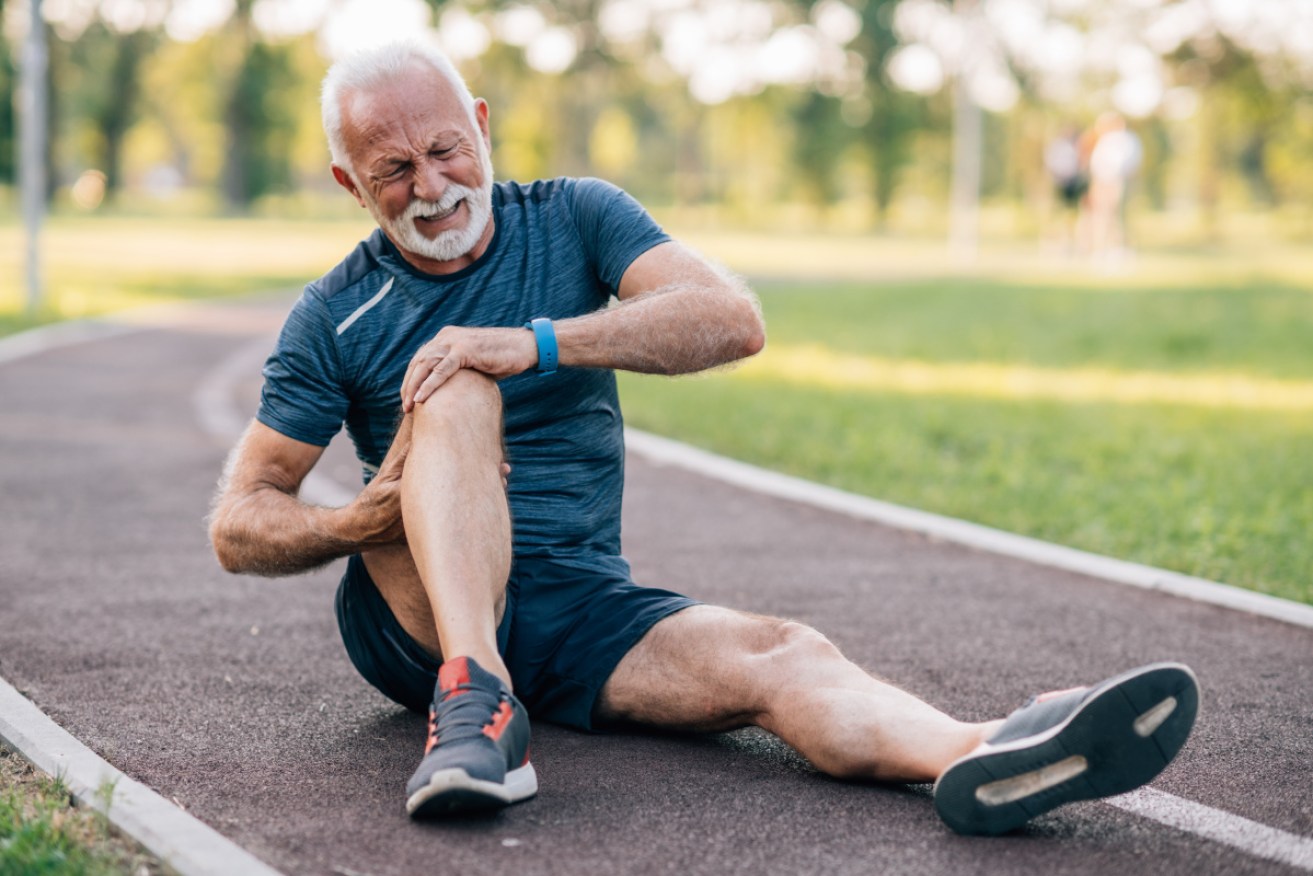‘Lasting pain relief’: New hope for people left crippled by knee surgery


Knee replacements and other procedures delayed by the COVID pandemic are now in the fast lane. Photo: Getty
Knee replacement surgery is the last and somewhat radical resort for treating pain and loss of mobility due to osteoarthritis.
The advice tends to be: Lose weight and do more exercise and hang in there until the pain can be no longer tolerated.
So what happens when the surgery leaves you in chronic and debilitating pain? This is the reality for up to 30 per cent of knee surgery patients.
One option is to have the surgery again, with no guarantee that the pain will be gone.
Another option is cortisone injections that are relatively short acting.
Another option was floated last month at the annual meeting of the Radiological Society of North America: A rarely used procedure called cooled radiofrequency ablation (C-RFA) has been found to significantly reduce pain and stiffness in knee-surgery patients.
The study, from Emory University, has not yet been published or peer reviewed. But it is well supported by previous research.
Some studies found that a single treatment of C-RFA, which is minimally invasive, can be effective for up to a year. See here and here.
So, the treatment isn’t entirely new. But this presentation at the Radiological Society appears, by design, to have brought the treatment into the mainstream.
How does the treatment work?
The procedure involves inserting a probe, via an introducer needle, around the knee under local anaesthesia targeting specific nerve locations.
The tip of the probe delivers a low-voltage current (radiofrequency) to the deep sensory nerves around the knee.
Water circulating through the system allows for a greater dissipation of heat from the tip of the probe.
Some patients, because of their nerve anatomy, require treatment over a larger area.
The treatment works by causing targeted thermal damage to deep-knee nerve structures, interrupting the transmission of pain signals.
The pain is attenuated while the nerve structure is restored.
In previous studies, the Emory researchers demonstrated that C-RFA “provides lasting pain relief for people with knee, shoulder and hip arthritis”.
The new study focused on 21 patients suffering “persistent chronic pain after total knee replacement, without underlying hardware complications”.
Meaning: The pain wasn’t caused by the implant.
The results
The patients filled out “clinically validated questionnaires to assess pain severity, stiffness, functional activities of daily living and use of pain medication before and after the procedure”.
Follow-up outcome scores were collected up to one year after the C-RFA procedure.
Patients experienced, on average, “a statistically significant improvement in quality of life”.
Both pain and stiffness scores improved dramatically.
No major complications were encountered, and no patients required repeat treatment, surgical revision or other intervention.
The lead author of the study was Dr Felix Gonzalez, assistant professor in the Division of Musculoskeletal Imaging of the Department of Radiology and Imaging Sciences at Emory University School of Medicine in Atlanta, Georgia.
In a prepared statement he said: “It’s very encouraging that up to a year out these patients have such significant pain relief and a better quality of life. The hope is that in that period of time, the patient can become more mobile and increase their activity.”
Dr Gonzales said that “even if pain comes back, we predict that it won’t come back with the same intensity as before”.
He said his team hoped that the procedure “will become a standard of treatment for pain in this setting”.








